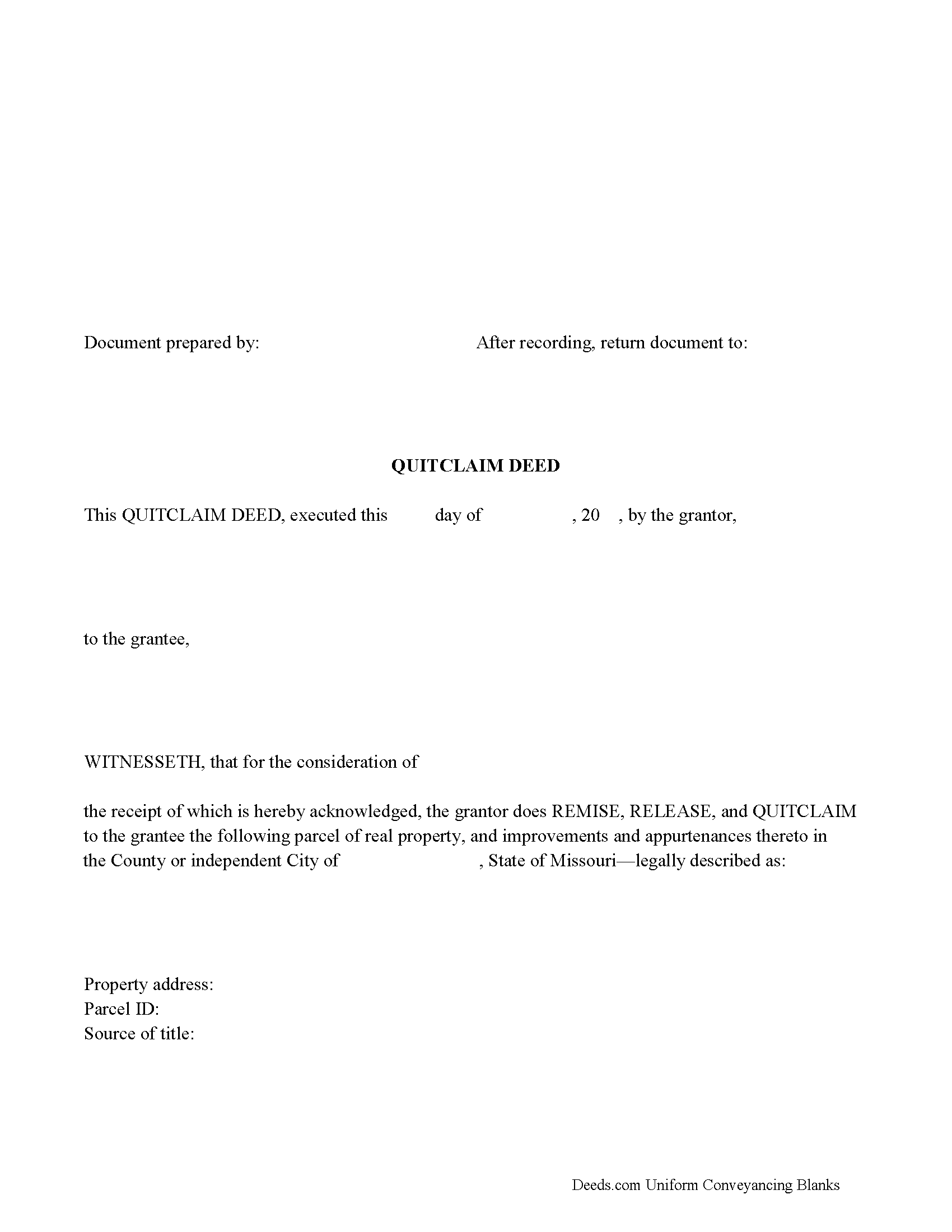

Forms are available immediately after submitting payment.
Immediately after you submit payment, the Dallas County forms you order will be available for download directly from your account. You can then download the forms to your computer. If you do not already have an account, one will be created for you as part of the order process, and your login details will be provided to you. If you encounter any issues accessing your forms, please reach out to our support team for assistance. Forms are NOT emailed to you.
This indicates the most recent date when at least one of the following occurred:
Yes. Our form blanks are guaranteed to meet or exceed all formatting requirements set forth by Dallas County including margin requirements, content requirements, font and font size requirements.
Yes. You can re-use the forms for your personal use. For example, if you have more than one property in Dallas County that you need to transfer you would only need to order our forms once for all of your properties in Dallas County.
Often when a deed is recorded, additional documents are required by Missouri or Dallas County. These could be tax related, informational, or even as simple as a coversheet. Supplemental forms are provided for free with your order where available.
All of our Dallas County Quitclaim Deed forms are PDFs. You will need to have or get Adobe Reader to use our forms. Adobe Reader is free software that most computers already have installed.
You will need to have Adobe Reader installed on your computer to use our forms. Adobe Reader is free software that most computers already have installed.
No. The blank forms are downloaded to your computer and you fill them out there, at your convenience.
Yes, you can save your deed form at any point with your information in it. The forms can also be emailed, blank or complete, as attachments.
No. Nothing to cancel, no memberships, no recurring fees.
Real property transfers are governed by Chapter 442 of the Missouri Revised Statutes. Quitclaim deeds, however, are not specifically defined in the statutes.
(Missouri QD Package includes form, guidelines, and completed example)
Quitclaim deeds are used to transfer the rights, title, and interest in real estate from the grantor (seller) to the grantee (buyer) without any warranty of title. When using a quitclaim deed, there may be potential unknown claims or restrictions on the title, and the buyer accepts the risk, effectively taking the title as-is.
These deeds are frequently used in instances such as a divorce, with one spouse signing all of his or her rights in a piece of real property over to the other spouse; when there is uncertainty about the history of the property's title; or when a current owner or buyer wishes another party with interest in the property to disclaim that interest.
A lawful quitclaim deed includes the names and addresses of each grantor and grantee, and a complete legal description of the property (59.310, RSMo). Include the preparer's name, address, and signature as well. Besides these requirements, the form must meet all state and local standards for recorded documents.
All recorded documents or documents affecting a change in property ownership must contain information on how the property will be vested. For Missouri residential property, the primary methods for holding title are tenancy in common, joint tenancy, and tenancy by the entirety. A grant of ownership of real estate to two or more unmarried persons is presumed to create a tenancy in common, unless otherwise stated in the conveyance. Real property conveyed to a married couple vests as tenancy by the entirety (442.450, RSMo).
Include all relevant documents, affidavits, forms, and fees along with the deed for recording. Jackson County, St. Louis County, the City of St. Louis, and St. Charles County each have their own Real Property Certificate of Value. File this form with the deed at the time of recording.
In Missouri, the grantor must sign the deed in the presence of a notary public before presenting it to the county recorder. In the City of St. Louis, both the grantor and grantee must sign the deed.
Recording the deed preserves a clear chain of ownership history and provides public notice. An unrecorded quitclaim deed in writing will be valid between the parties to it and those that have actual notice of it (442.400). Submit all deeds to the local county clerk's office of the county in which the property conveyed is located.
This article is provided for informational purposes only and is not a substitute for legal advice. Contact a lawyer with questions about quitclaim deeds or any other issues related to the transfer of real property in Missouri.
(Missouri QD Package includes form, guidelines, and completed example)